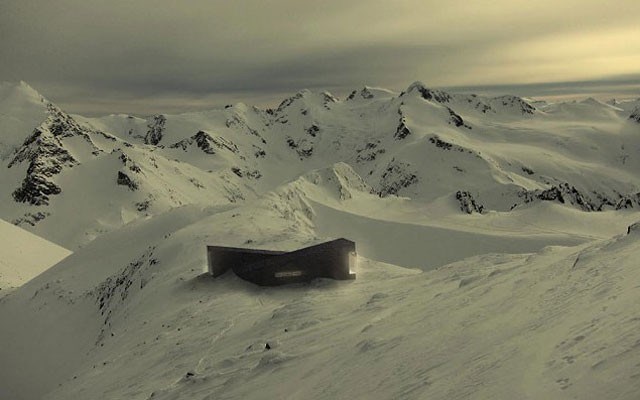After a delay of nearly a year the province this week released the amendments to the Garibaldi Park Management Plan.
BC Parks gave a thumbs up to the development of a series of backcountry huts in the Spearhead Traverse area.
But it also maintained its support for heli-skiing in the area, currently under tenure to Whistler Blackcomb's (WB) Whistler Heli-Skiiing. The activity will continue until 2016 as originally outlined in the plan, but the amendment goes on to state that by "no later than 2026," it would develop a recommendation on the future of heli-skiing that meets the vision of the park, which "could include continuing, adjusting or eliminating heli-skiing" from the area.
During the park plan amendment public consultation period 68 per cent were against the continuance of heli-skiing in the park.
The development of the hut system was designated as a high priority in the plan, with a particular focus on minimizing the environmental impact on the surrounding ecosystem, including sustainable water and waste management systems.
The Spearhead Huts Committee, which includes representatives from the Alpine Club of Canada and B.C. Mountaineering Club, submitted a proposal to the province in 2012 to develop three backcountry huts along the Spearhead Traverse.
"We're very pleased to see it finally released," said hut committee chair, and Whistler councillor, Jayson Faulkner.
The release of the amendment plan was not without controversy. Last October, Faulkner wrote to Environmental Minister Mary Polak to express his concern with the amendment process after Whistler Blackcomb was allowed to view the amended management plan ahead of its final approval. No other stakeholders were given the opportunity to go over the document after a draft plan was released in 2012.
BC Parks is now accepting proposals for the possible erection of several modest overnight huts in the area. The province has said the proposals process could take six to eight months, a timeframe that's "not acceptable" in Faulkner's mind.
"We feel like we've done all the heavy lifting on this and it shouldn't be a long, drawn out process," said Faulkner.
BC Parks' continued support of heli-skiing has been a point of contention, with those opposed citing the activity's "inconsistency with the non-motorised vision for Garibaldi Park," which conflicts with backcountry skiers, noise, emissions, impacts to wildlife and a diminished sense of wilderness, according to the plan.
Resort partners, however, pointed to heli-skiing's importance to the community's tourism industry, a sentiment that was echoed by BC Parks.
"Heli-skiing is part of a unique experience that destination visitors to Whistler are seeking, combining one or two days of heli-skiing with an on-mountain experience," the plan states.
BC Parks included a commitment to monitor the effect of heli-skiing on key park values, including public recreation activities and area wildlife.
Despite strong demand locally for additional biking opportunities in the high alpine, particularly in the Singing Pass and Musical Bumps area, BC Parks will not expand the recreation in the Spearhead area. This is due to the potential for negative impacts.
"Even with well-designed and well-managed trails, there is significant risk associated with allowing mountain biking in this area of the park, where this activity could result in cumulative environmental impacts, particularly in the wet alpine meadow habitats associated with the Singing Pass area," the plan stated.
The Whistler Off Road Cycling Association (WORCA) was a major proponent of increasing access in the area for bikers, but president Jerome David said he's satisfied.
"We're disappointed that there's nothing happening immediately, but we're happy that we're actually talking (with BC Parks), because for 20 years there was no talk," he said.




